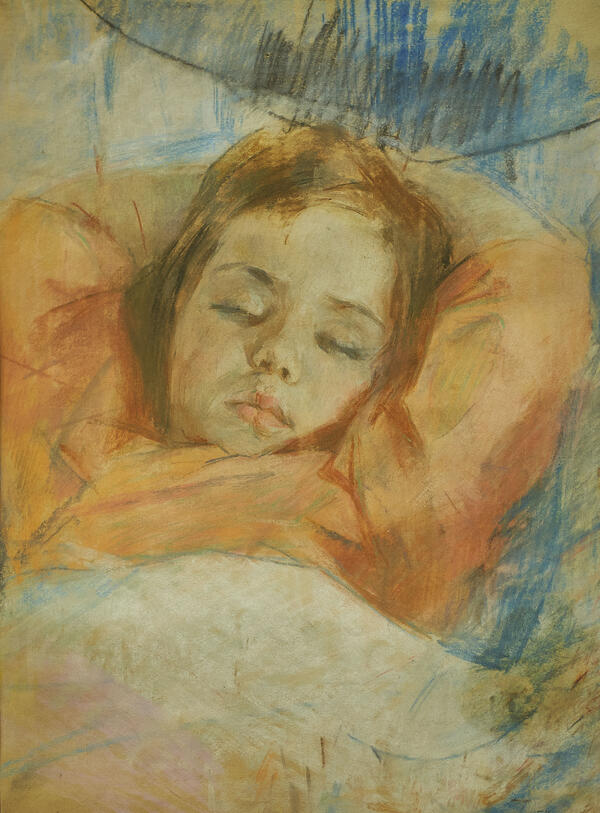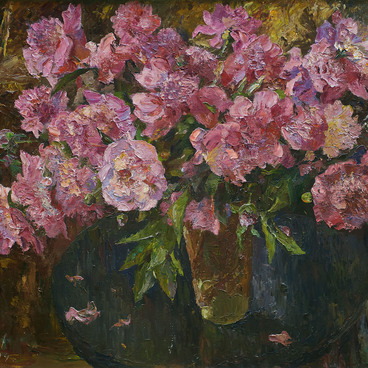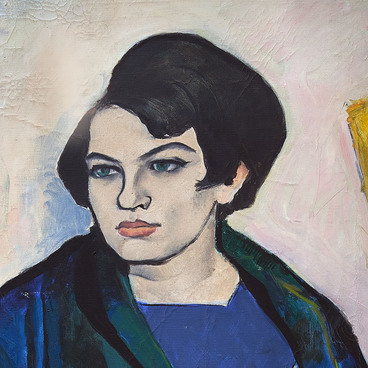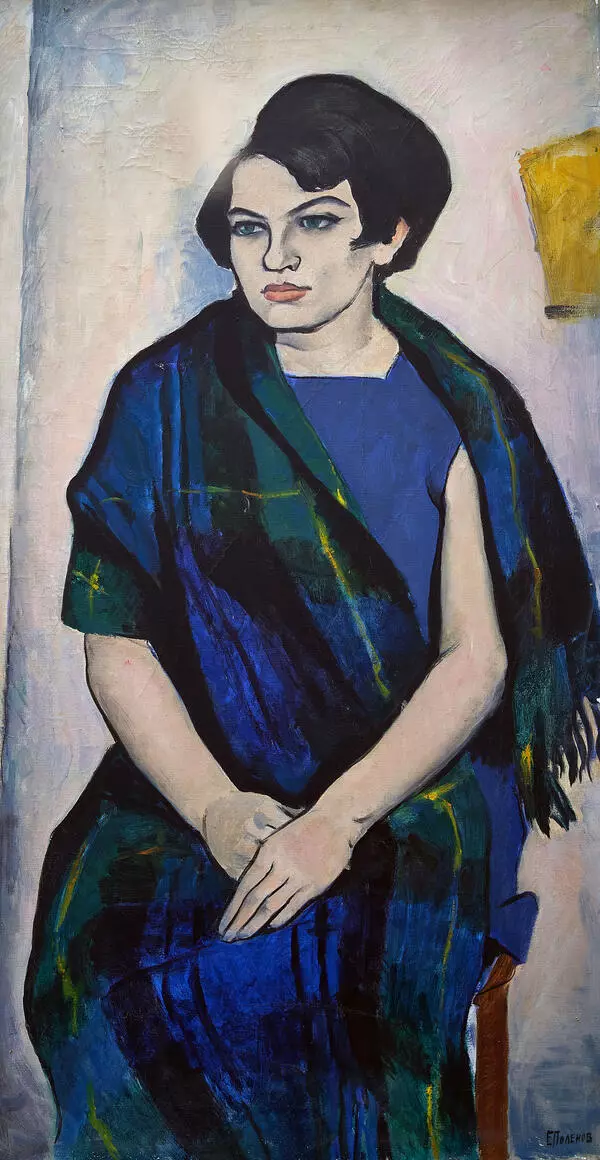‘Portrait of a Girl called Marinka’ which is in the Valuy Museum of History and Art collection, was created by Belgorod artist Yevgeny Polenov.
The future artist was born in 1937 in Sukhumi, the Abkhazian SSR. In 1958, after graduating from the Simferopol Art school, Yevgeny Polenov went to study in Kharkov. There he entered the Painting Department of the Kharkov State Art Institute, where he completed his studies in 1964.
At the age of 27, Evgeny Polenov moved to Belgorod, where he soon became a member of the Artists' Union of the USSR. Several years in a row, the young painter was chosen as a member of the Board Belgorod Union of Artists. During the same period, Polenov was awarded the medal ‘For Labor Valour’ by the Presidium of the Supreme Soviet of the USSR. Also, he was awarded honorary diplomas of the Secretariat of the Artists' Union of the USSR, the Russian Federation, the Belgorod regional branch of Union of Artists of Russia, and the Department of culture of Belgorod region.
The artist Evgeny Polenov worked in the field of monumental and decorative art and easel painting in the genre of portrait, still life, landscape. He often painted and collaborated with another Belgorod artist Viktor Blinov. Their paintings, mosaics, and reliefs, which they worked on in the 1970s and 1980s, can be seen on the facades and interiors of public buildings in Belgorod. Polenov’s works are kept in the collections of the Belgorod State Art Museum and private collections in Russia and abroad.
In the chest-high portrait, Evgeny Polenov depicted his daughter Marina. The work is done in the graphic technique of pastel. The central plot of the picture is a girl sleeping under a fluffy blanket. In the portrait, the artist did not use unnecessary distracting elements. He paid attention only to the detailed drawing of the face and pose in which the girl fell asleep. Her figure is graceful: a slight half-turn of the body, smooth curves of the arms drawn up. Polenov used a delicate combination of colors to depict the dream world in which the child stayed: an orange-gold shirt against the bluish shadows of bed linen, a snow-white blanket.
The future artist was born in 1937 in Sukhumi, the Abkhazian SSR. In 1958, after graduating from the Simferopol Art school, Yevgeny Polenov went to study in Kharkov. There he entered the Painting Department of the Kharkov State Art Institute, where he completed his studies in 1964.
At the age of 27, Evgeny Polenov moved to Belgorod, where he soon became a member of the Artists' Union of the USSR. Several years in a row, the young painter was chosen as a member of the Board Belgorod Union of Artists. During the same period, Polenov was awarded the medal ‘For Labor Valour’ by the Presidium of the Supreme Soviet of the USSR. Also, he was awarded honorary diplomas of the Secretariat of the Artists' Union of the USSR, the Russian Federation, the Belgorod regional branch of Union of Artists of Russia, and the Department of culture of Belgorod region.
The artist Evgeny Polenov worked in the field of monumental and decorative art and easel painting in the genre of portrait, still life, landscape. He often painted and collaborated with another Belgorod artist Viktor Blinov. Their paintings, mosaics, and reliefs, which they worked on in the 1970s and 1980s, can be seen on the facades and interiors of public buildings in Belgorod. Polenov’s works are kept in the collections of the Belgorod State Art Museum and private collections in Russia and abroad.
In the chest-high portrait, Evgeny Polenov depicted his daughter Marina. The work is done in the graphic technique of pastel. The central plot of the picture is a girl sleeping under a fluffy blanket. In the portrait, the artist did not use unnecessary distracting elements. He paid attention only to the detailed drawing of the face and pose in which the girl fell asleep. Her figure is graceful: a slight half-turn of the body, smooth curves of the arms drawn up. Polenov used a delicate combination of colors to depict the dream world in which the child stayed: an orange-gold shirt against the bluish shadows of bed linen, a snow-white blanket.




